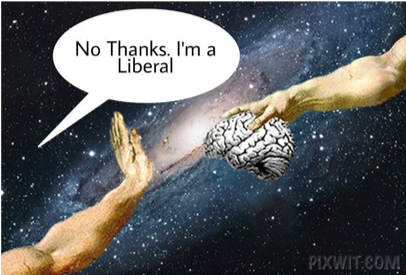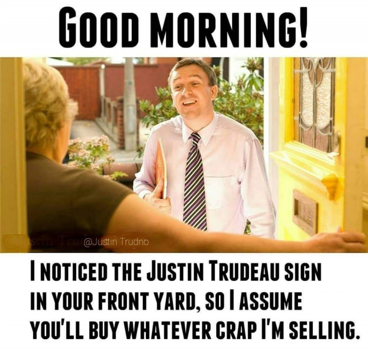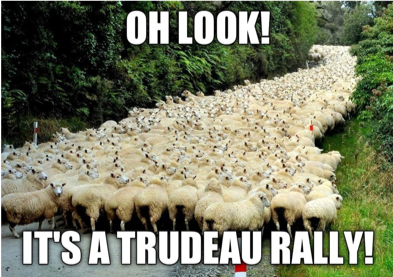By Scott DeJong
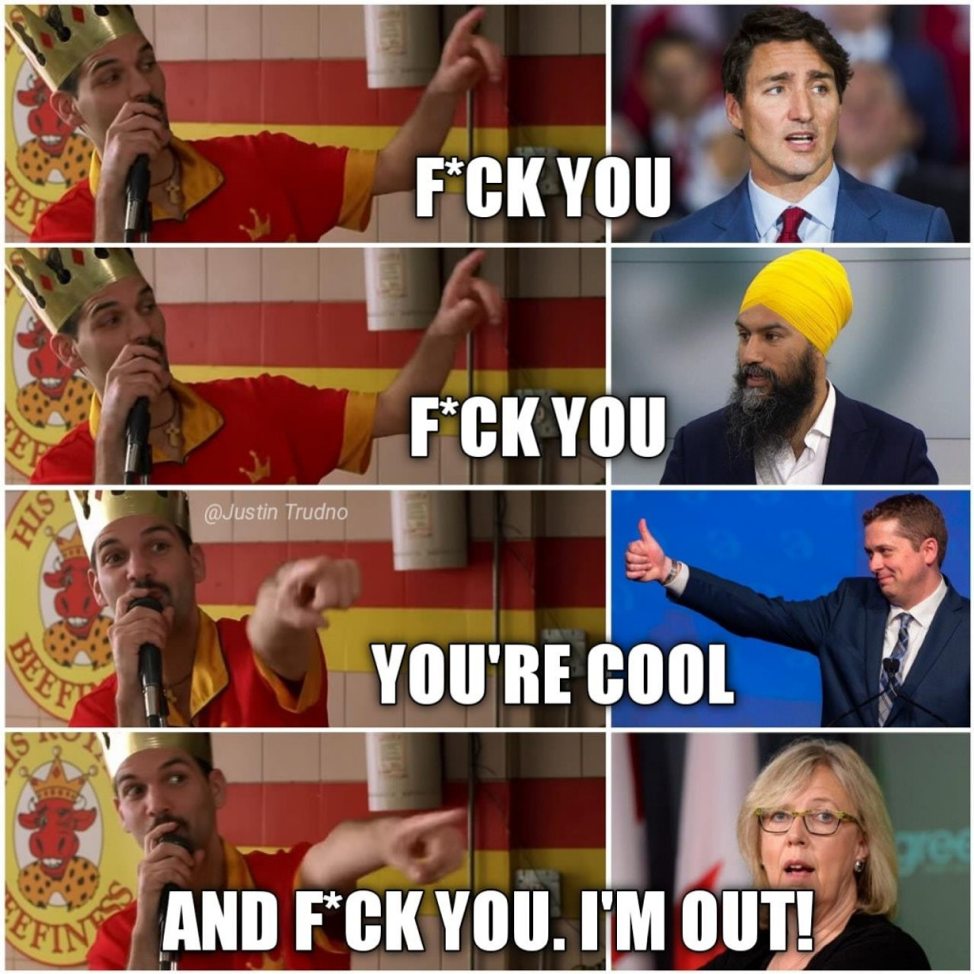
About and origin
Taken from the 1998 film Half Baked directed by Tamra Davis, this meme template takes four frames from a somewhat infamous quitting scene of the film’s character nicknamed Scarface. In the scene, one of the films ‘stooges’ quits his job in an eloquent fashion, insulting fellow coworkers and customers except for one loyal customer.
Attempting to highlight Scheer as the only “cool” candidate, this meme shows Scarface expressing a negative reaction to alternative options, with an eloquent “F*ck You” directed at Justin Trudeau, Jagmeet Singh, and Elizabeth May. Posted by Facebook page Justin Trudno, one of a few very active anti-Trudeau groups, on October 15, 2019, this specific iteration of the meme received the page’s highest amount of shares over the election campaign period.
While not commonly used as a template, the meme is classified as a reaction image and is typically used as a gif. Reaction images are used to portray specific emotions or responses to a subject, event or idea. Commonly used within Facebook chats with the gif feature, reaction images can be found across platforms as a response to a range of issues.
Context and circulation
Posted a week after the English language debate and a week before election day, the meme received 6.8K shares over the election campaign period. While not the most liked meme, it received the most traction outside of the Justin Trudno page. As a Facebook page, Justin Trudno was quite active in the run-up to the elections showing strong support for the Conservative Party. Rather than pointing out why voters should support the Conservative Party and its platform, the page mostly focussed on their political opponents and attacked other parties, values or political priorities, and candidates. While the page’s name suggests a focus on Trudeau, it consistently poked holes at the liberal voter, suggesting that they were unintelligent and lacking in critical discussion (see examples).
Shortly after the election, the Justin Trudno page was taken down, leading to a series of these memes being ‘lost’. While the page was replaced with Justin Trudnope, the initial post of the meme was deleted along with the page. Prior to shut down, the meme generated extensive interaction on Justin Trudno, being one of the most shared posts and generating 384 comments on the initial post.
Justin Trudno was a distinct online space focused on a conservative agenda, posting memes and other content that established and cultivated a collective mindset among its audience members. Ideas and opinions of the opposing political camps were consistently attacked, creating a digital hive where user interaction and content developed a community understanding of shared likes and dislikes. As the meme offers no argument and therefore no help in political debate, its creators avoid policy issues but instead reinforce existing partisan perspectives of candidates, informing viewers about which candidate they should support.
The meme embodies the right-leaning narrative that this conservative partisan page was attempting to promote: “stop the Left”. The meme, like others on the page, reinforces the same message where “a lack of variance in most memetic components features conformist patterns of participation, despite the absence of formal gatekeeping” (Gal et al., 2015, p. 1710).
While Gal et al.’s work looked at minority groups, their research highlighted how the repetition of a message creates a conformist space which excludes peripheral perspectives (Gal et al. 2015). The message of the Half Baked meme is not intended for a minority group, however it is repeated across the content and comments on the page. Users on the page become submerged within the same lines of arguments, establishing the idea that conservative equals good and anything else equals bad as consensus within the specific user community of this page. Moody-Ramirez and Church (2019) have argued that this is typical for user-generated content that promotes the “good” of their candidate and the “bad” of others as “Facebook’s large membership base allows users to share ideas with a large audience that, at one time, might have remained isolated.” (Moody-Ramirez & Church, 2019 p. 9).
By bringing people together the site can allow for partisan views to be propagated with like-minded individuals. While the coming together of voters with their ideological peers can be interpreted as beneficial for users, memes like the reaction template above offer little opportunity for political discussion and create an environment focused on binary political views.
Analysis
Scarface is an odd film character to praise your candidate of choice. Throughout Half-Baked, he is portrayed as unintelligent and as having no life aspirations aside from getting high. The aimless stoner likely would not vote Conservative, if he voted at all, because the Conservative Party has heavily criticized the Liberal government’s legalization of marijuana in the past. Memes, however, don’t have to make sense to be effective. Thinking too much about the joke ruins it (and makes the job of a meme encyclopedia a humourless task).
Memes are not designed for their audience to critically analyze the template. In fact, memes attempt to distance themselves from the origin content, repurposing the template to send a message crafted for a specific occasion. The meme, in this context, functions as a binary of good vs bad. The meme presents the other political parties as an issue, annoyance or bad, while promoting the Conservatives as the ‘cool’ or good choice.
The simple language used in the template promotes this binary distinction, ignoring platforms, policies, and values expressed in the campaigns of all political parties. Instead, the meme focuses only on the leaders and presents voting as an act of passing judgement on individual candidates. The images selected further promote this binary of good vs bad displaying Trudeau, Singh and May as hesitant, clueless, and with open-mouthed facial expressions. Scheer stands out as he smiles and has his hand raised in an energetic ‘thumbs up’ gesture.
The Half-Baked meme reflects a general trend observed in the analysis of memes for the Federal Election. A large amount of memes focused on reaffirming voter values and mobilizing the respective support base for election day rather than trying to swing voters to the other side. The simplicity of the meme alongside its traction highlights the use of memes during the election campaign to reaffirm and strengthen existing notions, thoughts and partisanship.
Researchers who have analyzed memes have asserted that memes become adopted, used and shaped by their interactions with specific communities (Miltner, 2018; Pelletier-Gagnon & Pérez Trujillo Diniz, 2018). Gal et al. (2015) argue that memes can also create identities among groups, suggesting that “choosing to post a particular meme version in a particular digital arena co-constructs individuals and collectives” (p. 1701). As Philips and Milner (2017) point out, memes can function as constitutive humour, where a collective group is formed around a mockery of another group. Through constitutive humour memes establish an us vs them dialogue, further entrenching partisans within their collective, while delegitimizing a collective Other.
The meme is one of many partisan ‘F*ck you’s found on Facebook. Here are two examples from the page Scheer 2019:
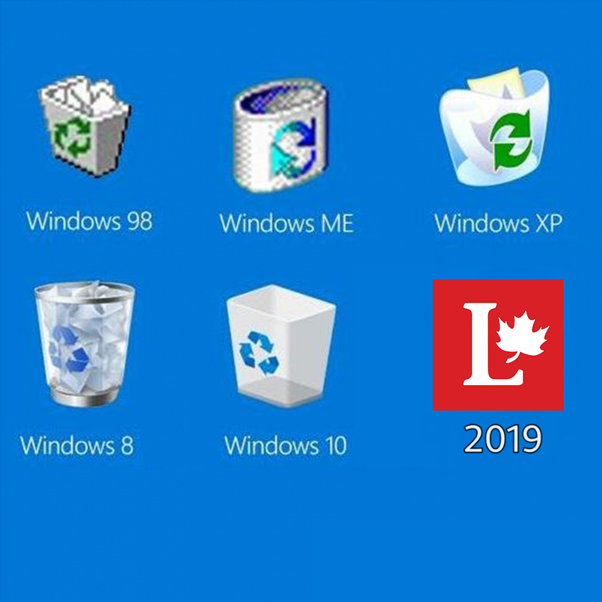
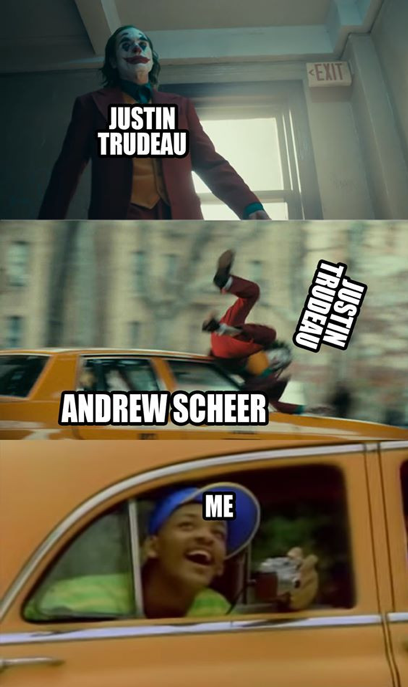
In this meme, Scarface also points to a changing political climate where supporters gather and engage within spaces to play around and joke with fellow partisans. The meme presents a simple position for conservative supporters, propagates active support, displays high community engagement and is representative of the page’s goals. Ultimately, the simplicity of the meme can obscure the underlying frameworks that allow political communities to enforce ideology of a party or candidate around the campaign.
References
Bruns, A. (2019). Are Filter Bubbles Real? John Wiley & Sons.
Gal, N., Shifman, L., & Kampf, Z. (2015). “It Gets Better”: Internet memes and the construction of collective identity. New Media & Society, 1461444814568784.
Miltner, K. M. (2018). Internet Memes. In The SAGE Handbook of Social Media (pp. 412–428). SAGE Publications Ltd. https://doi.org/10.4135/9781473984066
Moody-Ramirez, M., & Church, A. B. (2019). Analysis of Facebook Meme Groups Used During the 2016 US Presidential Election. Social Media + Society, 5(1), 205630511880879. https://doi.org/10.1177/2056305118808799
Pelletier-Gagnon, J., & Pérez Trujillo Diniz, A. (2018). Colonizing Pepe: Internet Memes as Cyberplaces. Space and Culture, 1206331218776188. https://doi.org/10.1177/1206331218776188


